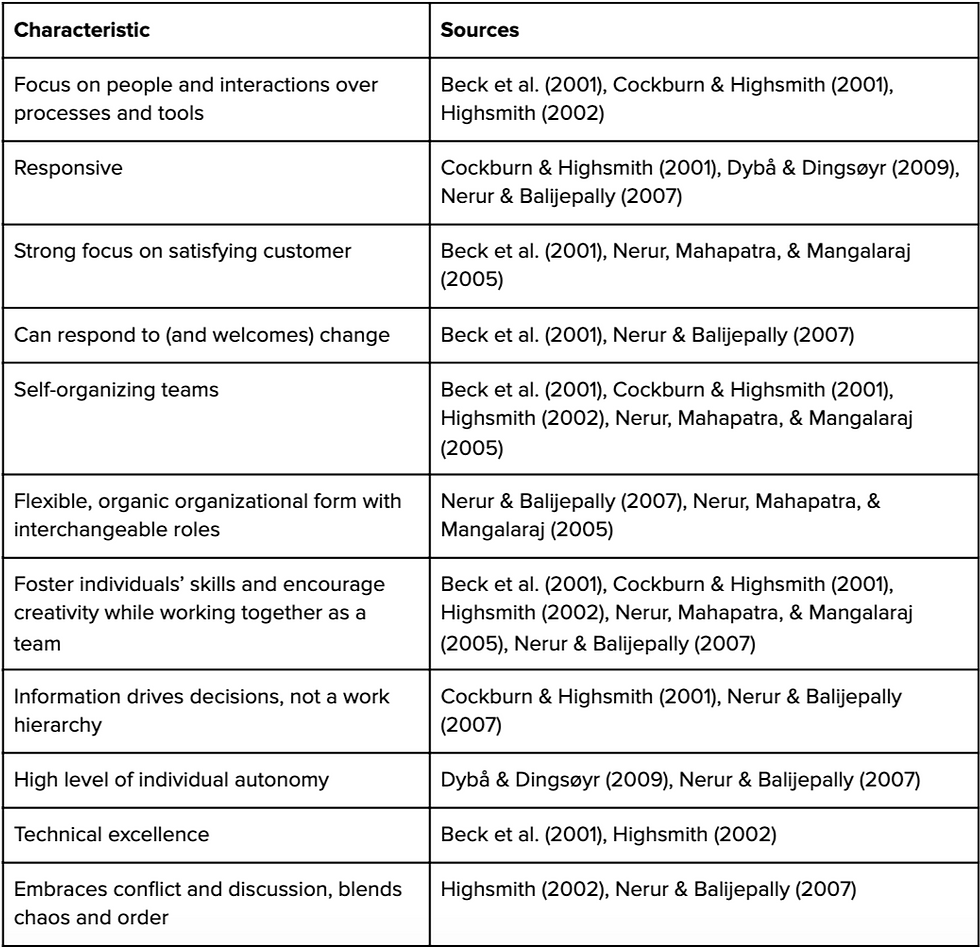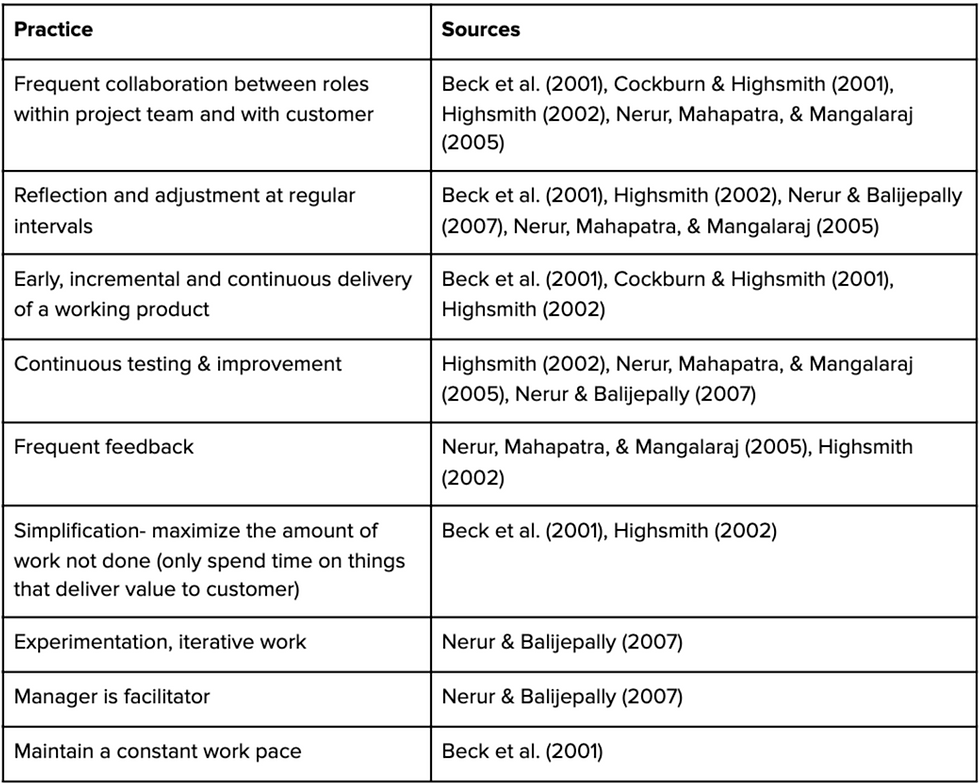What's behind the buzzword? Characteristics & practices of agile organizations - MSc Thesis Context
- Trey Hahn
- Jan 17, 2020
- 2 min read
Updated: Aug 14, 2023
I will be sharing what I found in my master's thesis, broken down into multiple blog posts. Before starting the series, this post explains a key concept for the thesis: an "agile" way of working.
"Agile" is a buzzword. As a buzzword, it is overused and often misused. But what does agile working actual entail? Behind the veil, there are concrete values and ideas. The title of my master's thesis, Collaboration, experimentation, continuous improvement?, teases some of these ideas. This blog post gives context on what agile actually means in the context of the research.
There are many different perspectives on agile, so some decisions had to be made up front about how to define it. I made the following lists to summarize relevant characteristics and practices of agile organizations, and then used these throughout the research.

Characteristics of an agile organization

Practices of an agile organization
These are the ideas behind agile that the thesis explores deeper. And as the thesis explains, it is in these ideas where agile's value lies, not in the buzzword. The upcoming blog posts will use the research questions to take you through the thesis step by step.
References
Beck, K., Beedle, M., Bennekum, A. van, Cockburn, A., Cunningham, W., Fowler, M., … Thomas, D. (2001). Manifesto for Agile Software Development. https://agilemanifesto.org/
Cockburn, A., & Highsmith, J. (2001). Agile software development: The people factor. Computer, 34(11), 131–133. https://doi.org/10.1109/2.963450
Dybå, T., & Dingsøyr, T. (2009). What Do We Know about Agile Software Development? IEEE Software, 26(5), 6–9. https://doi.org/10.1021/i650563a753
Highsmith, J. (2002). What Is Agile Software Development? The Journal of Defense Software Engineering, 15(10), 4–9. https://doi.org/10.1109/2.947100
Nerur, S., & Balijepally, V. (2007). Theoretical reflections on agile development
methodologies. Communications of the ACM, 50(3), 79–83. https://doi.org/10.1145/1226736.1226739
Nerur, S., Mahapatra, R., & Mangalaraj, G. (2005). Challenges of migrating to agile methodologies. Communications of the ACM, 48(5), 73–78.
Update: since this blog post was written, an academic article has been published on the thesis research (see here, open access).


Comments